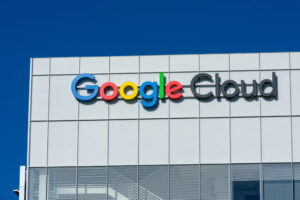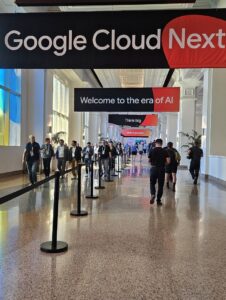Google Cloud unveiled a major round of database enhancements at its Next 2025 conference, including a host of new AI features in AlloyDB, a MongoDB-compliant API for Firestore, continuous materialized views in BigTable, MCP connections galore, new database migration services, and the introduction of Oracle Exadata in its cloud.
When it comes to AI, Google Cloud is seeing a considerable amount of momentum in AlloyDB, its Postgres-flavored relational database service. It adopted the open source pgvector extension for Postgres in mid 2023, allowing AlloyDB customers to store vector embeddings directly in their database and query them using the extension’s approximate nearest neighbor (ANN) algorithm.
In April 2024, Google Cloud added the internally developed Scalable Nearest Neighbor (ScaNN) algorithm to AlloyDB, giving its database an immediate 8x performance boost in creating vector indexes, a 4x boost in serving vector queries, and a 10x boost in write throughput, according to its April 2024 white paper.
All that AI-focused data processing horsepower has translated directly into a 7x increase in vector searches on AlloyDB over the past year, according to Andi Gutmans, the vice president and general manager of databases at Google Cloud.
“We’re seeing thousands and thousands of customers doing vector processing,” Gutmans said. “Target went into production with AlloyDB for their online retail search and they have 20% better hit rate on recommendations. That’s real revenue.”
Now the company is preparing AlloyDB database for the next round of AI innovation: agentic AI. That work takes several forms, which the company outlined at its Next 2025 conference at Mandalay Bay in Las Vegas.
For starters, the company is enabling its new Google Agentspace offering, which uses Google’s Gemini AI model to power autonomous AI agents, to conduct structured data searches in AlloyDB. Now GenAI developers can get access to all of the data stored in AlloyDB–structured, unstructured, and real-time–to build AI agents.
In 2024, Google Cloud introduced a natural language interface for AlloyDB, enabling customers to query data using natural language. Now it’s bolstering that natural language query capability by supporting parameterized secure views, which provide an extra layer of security for agents and GenAI apps, Gutmans said.
The company is also working to optimize SQL functionality that spans vector search and structured filters and joins in AlloyDB, which also helps the GenAI developer.
“Vector search is great, but it can be really slow to index vectors. It can be expensive to search them,” Gutmans told BigDATAwire in an interview at Next 2025. “For example, AlloyDB can index 10 times faster than open source Postgres just getting those vectors indexed. Search we do up to 10 times faster if you combine your vector search with database filters and joins. We have optimized the query processor.”
Google Cloud is also introducing a new AlloyDB AI query engine, which allows developers to use natural language expressions and constructs directly within SQL queries. That enables developers to use free text questions, such as “find family-friendly hotels in Orlando,” and directly embed them in their SQL queries.
“We’ve got to win the minds and hearts of the GenAI developers, right?” Gutmans said. “And so a lot of this is around how do you make the AI easier for developers? How do you give them the right APIs? How do you make it more efficient? By bringing things lower down into the database. So that’s a lot of the work we’re doing.”
Google Cloud has also added support for Model Context Protocol (MCP) to a range of its databases via the Gen AI Toolbox for Databases, which the company first unveiled in February. Gen AI Toolbox originally was focused on providing LangChain data integration capabilities to AlloyDB, Spanner, Cloud SQL for Postgres, Cloud SQL for MySQL, and Cloud SQL for SQL Server. Now it’s supporting MCP, the protocol Anthropic unveiled late last year to connect a range of AI models with data and databases.
MCP fits nicely into Google Cloud’s plans for enabling developers to build the next generation of GenAI applications, Gutman said.
“We’re definitely seeing interest in in MCP,” he said. “MCP is really a very simple but very effective way to expose data services, or any service to foundation models. It’s JSON-RPC based. It’s got a way to do discovery. It’s got a way to have natural language descriptions for services. So you can actually have agents and models reason around which APIs should I be calling. So it’s a very simple but I think very effective protocol.”
Other DB Announcements at Next 2025
It’s not all the GenAI and AlloyDB show at Google Cloud, which sports half-a-dozen or so distinct database offerings. One of those other databases is Firestore, the company’s NoSQL document store.
At Next 2025, the company announced the addition of a MongoDB-compatible wire protocol to Firestore, which will essentially enable customers to plug in Firestore as the backend to applications that are currently backed by MongoDB, the JSON data store that’s immensely popular with developers.
“Firestore is a serverless, virtually unlimited-scale document database, with up to five 9s availability,” Gutmans said. “But it had a bespoke API. Customers love it. We have 600,000 developers on it. But they all said ‘Hey can you give me a MongoDB-compatible API so I can use my tools and frameworks that I’m already using?’”
Bigtable, the company’s other NoSQL database (of the wide-column variety, ala Cassandra) is also getting some new capabilities at Next 2025. Specifically, Google Cloud is giving Bigtable continuous materialized views, which will provide an easy way to build counters for real-time analytics.
Vector search is now generally available on Google Cloud Spanner, the company’s planet-scale operational data store. The vector search functions spans Spanner’s SQL, graph, key-value, and full-text search modalities.
Google Cloud also extended its partnership with database giant Oracle in several ways. First, it launched a new offering called Oracle Base Database Service, which expands on the Oracle Database@Google Cloud offering it launched in four global regions last year. It also announced the GA of Oracle Exadata X11M, which brings the latest generation of Oracle’s Exadata platform to Google Cloud. The Oracle databases are available in 20 Google Cloud locations, the company says.
Microsoft SQL Server is now supported in Google Cloud’s Database Migration Service (DMS), giving customers the ability to migrate their SQL Server installations to Postgres running either on AlloyDB or Cloud SQL. Google Cloud is welcoming SQL Server customers with
“Microsoft has made it very difficult for customers to use their licenses wherever they want to,” Gutmans said. “It’s not a technical problem. It’s a commercial problem. And customers just are getting more and more frustrated with the fact that they’re being like into the Azure environment as opposed to being able to have choice.”
Related Items:
Google Cloud Preps for Agentic AI Era with ‘Ironwood’ TPU, New Models and Software
Google Cloud Bolsters GenAI with ScaNN Index, Valkey Updates
Google Revs Cloud Databases, Adds More GenAI to the Mix
The post Google Cloud Fleshes Out its Databases at Next 2025, with an Eye to AI appeared first on BigDATAwire.



0 Commentaires